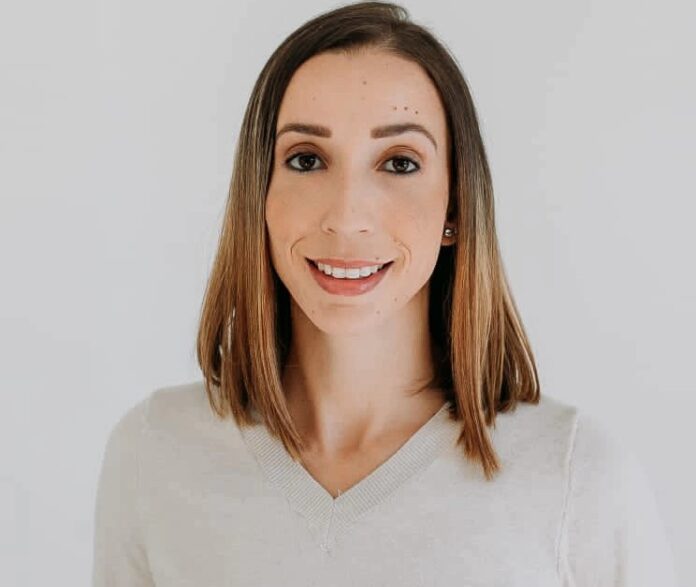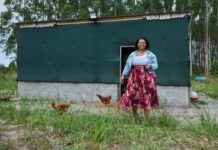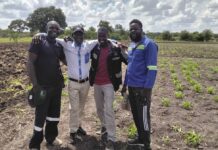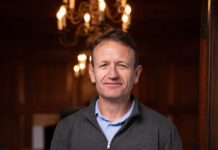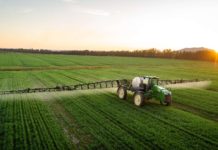In a world grappling with the consequences of water scarcity, attending World Water Week in Stockholm was an eye-opening experience for Alyssa Jooste, the Africa Sustainability Manager for Water Stewardship and Smart Agriculture at the South African Breweries.
The 2023 conference theme, “Seeds of Change: Innovative Solutions for a Water-Wise World,” reminded delegates of the urgency to reimagine our approach to water management and to address the looming water crisis.
One such reimagined approach is a local example in the Eastern Cape – Project
Imfino. Not only is it making significant strides in conserving water but at the same time it is supporting local agriculture in the province. Located near the SAB Ibhayi Brewery, the core of Imfino’s innovation is a commercial 2000m² drip irrigation system, designed to sustainably cultivate spinach in raised beds. What sets this project apart is its unique partnership between SAB, TaylorMade Water Solutions and Rhodes University. In 2022, the project supported the watershed with 100,452m³ of water and decreased Ibhayi Brewery’s carbon footprint by up to 19.18tons of CO2.
Another project with water-saving at its core, is in the Hops Valley, – the only region in Africa where hops are grown and a national strategic water source area. This partnership between The South African Breweries and World Wildlife for Nature South Africa is a decade long and tackles the threat posed by invasive trees. Invasive trees have posed a grave threat to this vital ecosystem, draining the water supply and leaving local communities and farmers vulnerable. Fortunately, there is a team who are making strides against invasive plants. Project implementing partner Rozanne Steyn explains the severity of the situation: “These rivers are highly infested with invasive plant species, which sap 60 – 80% more water than our natural vegetation. These plant species do not have natural enemies which can control them.” The invasive clearing project, driven by dedicated team of 10 to 12 individuals, has spent a decade tirelessly combating invasive species, resulting in an estimated water savings of nine billion liters per annum as long as these areas remain cleared. This not only enhances food security for local farmers but also ensures the efficient use and preservation of precious water resources.
Both of these projects illustrate the need for collaboration, and one of the salient points at the World Water Week in Stockholm was the need for collective action to drive meaningful change in water management. After a week of immersive learning and interaction, Jooste says key insights emerged that can guide SAB in building a more sustainable and water-secure future: “Innovation beyond technology is needed and we need to rethink policies, approaches, and methodologies, learning from our past mistakes and evolving our thinking. Effective solutions must consider accessibility, affordability, and relevance to local communities.”
She adds that the power of partnerships and collaborations are key for lasting impact: “Water security challenges transcend borders and sectors. Strong partnerships and collaboration are crucial to leverage diverse expertise and resources.”
Empowering entrepreneurship to drive new thinking is another key learning for Jooste, who explains: “Entrepreneurship and innovation are intertwined. Nurturing and supporting emerging business leaders in the water industry can unlock fresh perspectives and solutions. These businesses, in turn, support local communities and prioritise sustainability. Initiatives like Ab InBev’s 100+ Accelerator Programme are exemplary in this regard, promoting tangible and impactful solutions.”
The role of women in sustainability is key: “The conference also highlighted the significant contributions of women in driving sustainability initiatives. Engaging with female leaders, entrepreneurs, and thought leaders revealed their dedication to creating a more equitable and sustainable world,” concluded Jooste.


